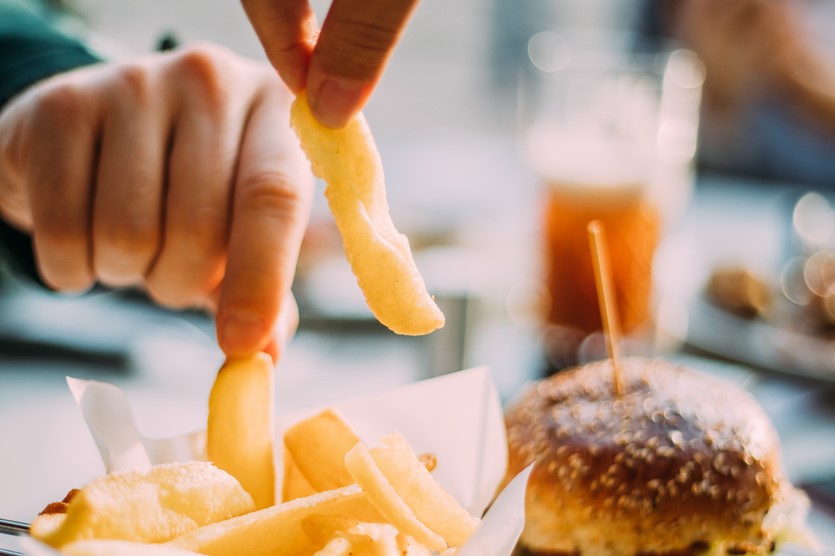The French fries caught my attention.
School had ended for Cary Academy’s Thanksgiving break, but eight of us—three adults and five students—were attending the Georgetown Day School virtual conference on Consent and Sexual Assault, a student-led conference taking place on a Friday and Saturday afternoon. That first day, all the conference attendees heard from a panel of sexual assault survivors as they bravely shared their stories. The following day, we all listened to an artist discuss how she shared her honest, positive messages with the world, how her personal search for ways to support herself and her friends through illustrations turned into an unexpected career. The leitmotif running through both those large gatherings? Empowerment.
That idea underlay the small group sessions as well. On the second day, I was listening to a presentation on consent, when the presenter started discussing how we tend to define “consent” too narrowly, thinking of the concept only in terms of intimacy. He described it this way:
You have a plate of hot fries in front of you. A friend reaches over, trying to grab one. In that situation, we teach kids that they have every right to say “no” or “yes.” We give them control over their space. And that’s what consent is really about: creating spaces where we feel comfortable assuming control over the area around us. Yes, sometimes consent is about intimacy. But that’s just a narrow portion of the definition. Consent is actually about empowerment. That’s why we teach kids to ask for the French fry, rather than snagging one without permission.
That set of skills—that empowerment to ask, that empowerment to hear—could make our world a better place. Just consider that all-present instrument of social media. Can we strengthen our students’ understanding of the need to ask before taking pictures of others and posting them?
Or even old school: rather than spreading rumors, how about we honor the stories of others and their rights to share—or not share—those stories? Especially since stories often mutate in the retelling?
In her weekly email to Middle School parents this weekend, Ms. Huntress Holland offered the following reflection on the conference:
“One noteworthy thread throughout the whole conference was the high schoolers (boys/girls/nonbinary kids alike) wished their parents had talked to them about consent when they were in middle school. They wanted the tools to be able to navigate future situations before they were catapulted into those future situations. That made sense to me, and I bet it does to you, too.”
I couldn’t agree more. Our goal for our students—more than success in the classroom, or accolades on the fields, or awards in the arts—is for them to have the skills to navigate the world beyond the classroom walls, even beyond graduation. And one of those vital skills involves claiming one’s space. It involves flexing that muscle of empowerment.
And that’s an important French fry lesson that transcends age and situation.

